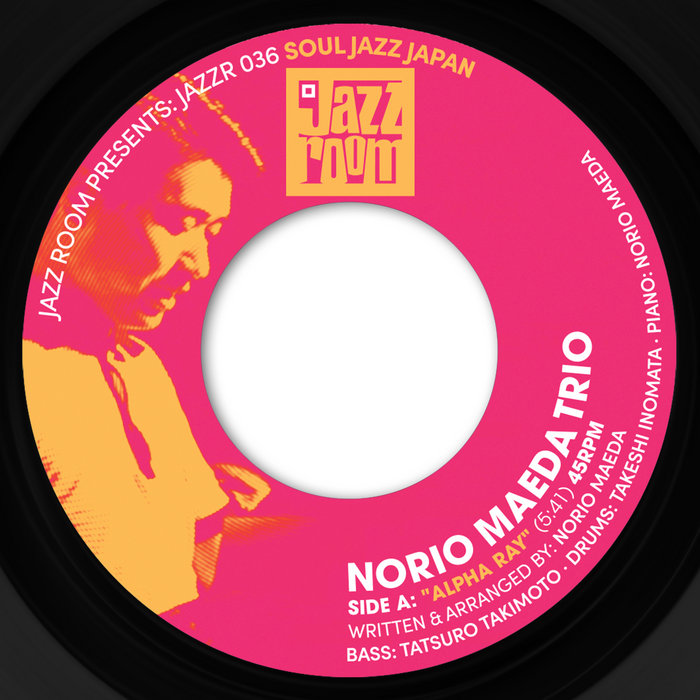
INTRO.. – Norio Maeda/Terumasa Hino
this blog is GROOVY – check out great Soul, Funk, Jazz, Hip Hop, Bass, Breaks , Reggae, House n many more TUNES
Japanese jazz is like that funky cousin at a family reunion—unexpected, intriguing, and downright unforgettable. While most jazz lovers often hum tunes from the likes of Louis Armstrong or Duke Ellington, Japan has been quietly cooking up its own jazzy stew since the early 20th century. Buckle up as we groove through the history of this unique genre!
It all started in the 1920s when American jazz made its way to Japanese shores. Picture this: flapper girls dancing and men in fedoras tapping their feet to lively tunes! This was during the Taisho era when Western influence began seeping into various parts of Japanese culture.
The first sign that something special was brewing came with Katsuo Nakajima’s introduction to jazz records around 1919. By the time World War II rolled around, live music turned into a bit of a party-crasher due to strict regulations; however, after the war ended, America’s occupation brought back those smooth sounds.
As Japan emerged from war-torn chaos, jazz became more popular than ever. Clubs sprang up across Tokyo like mushrooms after rain (woah hey!). During this swingin’ phase, musicians like Nisei (second-generation Japanese-Americans) stepped onto the scene.
One funny tidbit? In typical cool-cat fashion, some bands would mix traditional instruments like shamisen with classic jazz setups! Imagine an old-school shamisen player adding riffs next to a saxophonist—totally offbeat yet perfectly on point!
By the late ’50s and early ’60s, artists were blending influences from both East and West. Think bossa nova mixed with hard bop—or as I call it: “bossa-bop-a-loo!” A little spicy fusion caught everyone’s attention! Bands out there experimented with modal jazz too—take note Miles Davis!
During this period emerged some legendary figures such as Sadao Watanabe, known for his soulful sax solos and impeccable style—as well as Toshiko Akiyoshi, whose big band arrangements earned her global recognition. Did you know she once performed at Carnegie Hall while her husband played drums for her band? Talk about couple goals!
Then comes along what we fondly dub “J-Jazz.” This movement explored combining mainstream western styles with indigenous elements—the result? Nothing short than mind-blowing! Artists started creating sounds that echoed traditions yet resonated with modernity.
For instance:
Fast forward into contemporary times: more international collaborations are happening than ever before! Acts featuring prominent foreign artists have taken center stage in festivals throughout Japan—talk about bringing everyone together for groovy vibes!
Take Hiromi Uehara (a.k.a “Hiromi”), whose energetic performances dazzle audiences worldwide; she’s got fingers faster than your favorite DJ spinning vinyls! Fun fact alert: Hiromi’s piano skills were discovered at age four…she can literally play circles around most adults before even reaching kindergarten age 🧸🎹 .
Jazz isn’t just serious business; it’s also full of tales worth chuckling about:
Yasuko Agawa, who blasted onto Japan’s music scene in ‘83—not just because her songs rock but also due to one hilarious headline declaring “Jazz Queen Goes Disco!” – now THAT’S quite an identity crisis!
Then there’s Ryo Fukui, famous not only for his genius piano compositions but also because he rocked out wearing Hawaiian shirts regardless if he had gigs or casual hangouts—the dude loved sunshine vibes on stage 🌞🌊.
Ohhhh don’t even get me started on stories revolving around improvised jam sessions where musicians intentionally wore mismatched shoes—and proclaimed them part of their ongoing musical evolution…like some kinda art installation gone wild 😄👟👉👞 !
Today’s Japanese jazz remains vibrant and diverse—from cafes hidden underground playing smooth grooves each night to grand concert halls filled with innovative orchestras collaborating across genres.
As younger generations dive deeper into exploring these fantastic melodies stacked high across decades past—they’re remixing classics while keeping alive threads connecting everything beautifully intertwined within both cultural paradigms & experiences shared globally ❤️✨ .
So whether you’re sipping matcha lattes or chilling at home browsing Spotify playlists remember—the world needs your rhythm too so please enjoy every beat possible folks!!
Now go ahead put those dancing shoes on—it might just lead you down unexpected paths where surprises await beyond imagination 🎉🥳 .

INTRO.. – Norio Maeda/Terumasa Hino